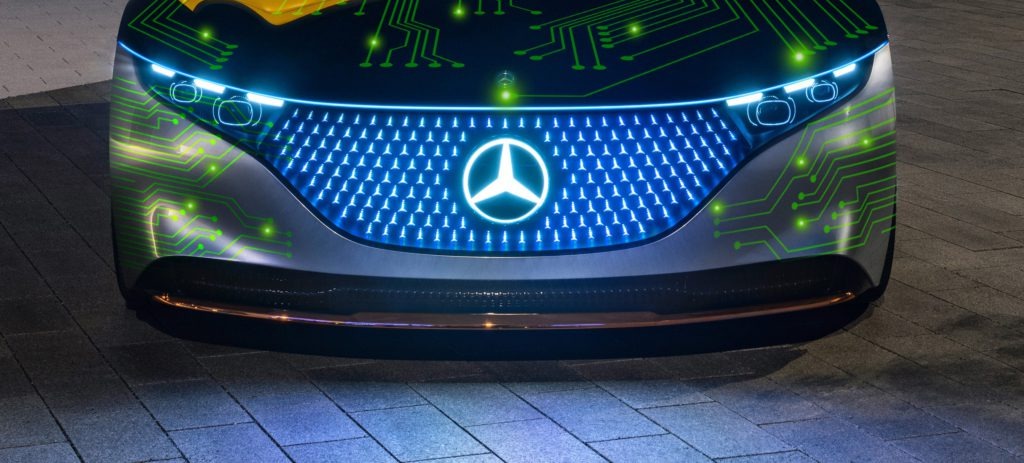Daimler to focus on luxury and electrification in push for profits
07 October 2020

7 October 2020
Daimler has announced a new strategy for its Mercedes-Benz brand, with a focus on electric vehicles (EVs) and a shift towards targeting the luxury market, in a move that could potentially impact its compact line-up. The company plans for the number of internal combustion engine (ICE) models it offers to drop 70% by 2030.
′We intend to build the world’s most desirable cars,’ said Daimler chairman Ola Källenius. ′It is about leveraging our strengths as a luxury brand to grow economic value and enhancing the mix and positioning of our product portfolio. We will unlock the full potential of our unique sub-brands – AMG, Maybach, G and EQ. Our strategy is designed to avoid non-core activities to focus on winning where it matters: dedicated electric vehicles and proprietary car software. We will take action on structural costs, target strong and sustained profitability.’
Compacting ranges
Part of this drive may see a reduction in the number of compact models the carmaker offers. The strategy will focus on ′optimising the balance between volume, price and channel mix to ensure improved contribution margins from the current and future portfolio.’ Mercedes-Benz will also focus its product development resources and capital on the most profitable parts of the market and the segments in which it competes.
′Maybe we went at a bit too far to cover each and every space into each and every segment. Compact particularly comes to mind,’ Källenius said during the strategy presentation.
Mercedes-Benz has focused on building up its compact A and B- Class ranges in recent years, and the carmaker may look to trim this line-up, focusing on fewer model options while adding in hybrid and electric drives and a luxury feel.
′Mercedes-Benz will reshape its product portfolio, brand communications and its sales network to deliver a true luxury experience – a luxury experience that will be electric, software-driven and sustainable,’ the carmaker stated.
Electrification improvements
Daimler is planning for Mercedes-Benz to lead the way in EV technology, and its dedicated sub-brand, EQ, is set for expansion over the next few years.
The carmaker has announced a new platform, the Mercedes-Benz Modular Architecture (MMA) designed for compact and medium-sized cars. This will sit alongside its upcoming large-car Electric Vehicle Architecture (EVA). To increase its range in the shortest space of time, Mercedes-Benz will also shift even more of its product development resources and expertise to electric drive. It will invest in new technologies and concepts to accelerate electric range and efficiency.
A number of new models have also been announced, with the EQS due in 2021, based on EVA, while the EQE business saloon and SUV variants of the EQS and EQE will follow. As a sign that the carmaker’s compact classes will survive in some way, production of the EQA is scheduled to start later this year, while the EQB will begin production next year.
′From 2025 on, we are targeting strong contribution margins for all new architectures thanks to high commonality and controlled investment, and ongoing falls in the cost of battery systems,’ said Markus Schäfer, member of the board of management of Daimler AG and Mercedes-Benz AG, responsible for Daimler Group research, and Mercedes-Benz Cars COO. ′While we will expand the electrified portfolio towards a share of more than 50% of global sales by 2030, our investments in combustion engine development will decline quickly, and the number of combustion engine variants will fall by 70% by 2030.’
In the area of car software, the company has announced its own proprietary MB.OS operating system. This will be developed in-house and is scheduled for launch in 2024. It will allow Mercedes-Benz to centralise the control of all the vehicles’ domains and its consumer interfaces.
Rise in passenger car sales
Meantime, the carmaker announced promising third-quarter results, with Mercedes-Benz global passenger car sales from July to September 2020 increasing by 3.9% to 613,770 units, compared with the prior-year quarter. The carmaker pointed to an ′attractive model portfolio’ and numerous measures taken by dealerships to respond to customer inquiries and interest, even during the coronavirus (COVID-19) lockdowns, which provided additional sales support in the third quarter.
′Demand from our customers in the third quarter was significantly higher than we had assumed in March and April in view of the challenges posed by the pandemic. We are pleased with customers’ positive response to our models and the increasing demand in many markets. However, the third quarter also shows how regionally diverse the situation still is in the markets and for our dealerships. We will therefore monitor developments very closely in the fourth quarter, but the current level of demand is encouraging’, said Britta Seeger, member of the boards of management of Daimler AG and Mercedes-Benz AG responsible for marketing and sales.
However, while sales may be improving at a time when pent-up demand is driving the market, Daimler is under no illusions that it is currently ′business as usual’. The carmaker has been struggling in recent years, thanks to a drop in sales and challenges in developing new low-emission technology in time to help reduce its fleet CO2 output.